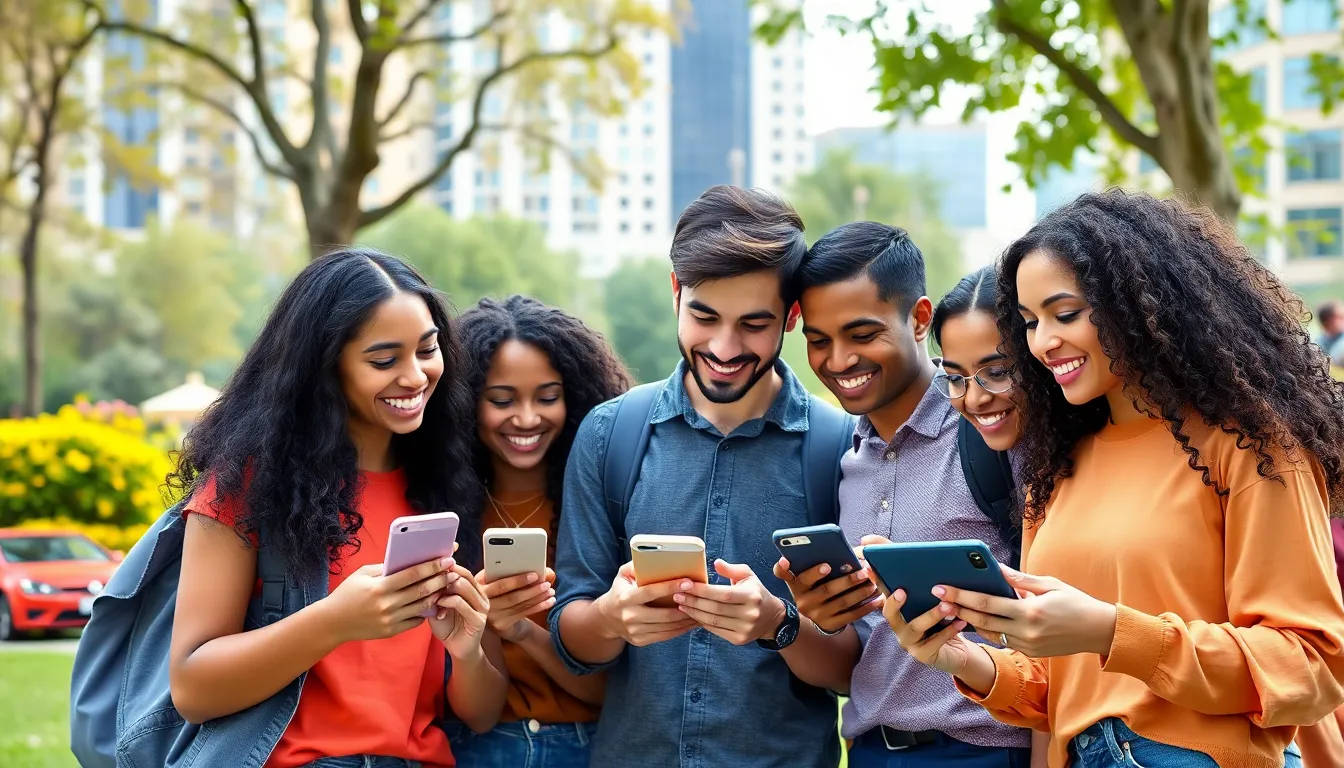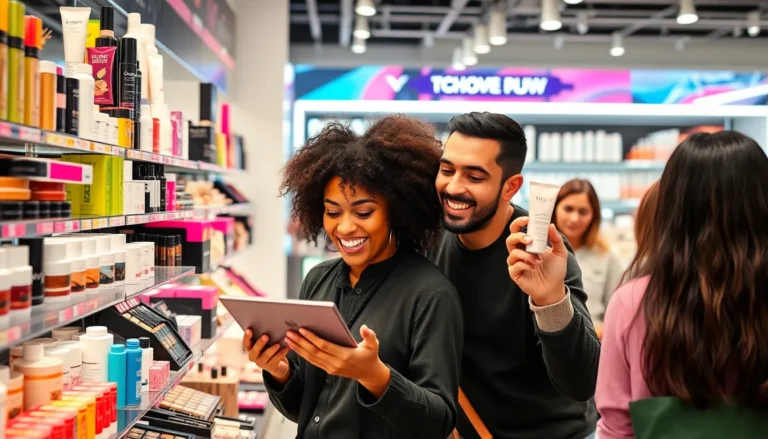In today’s digital playground, social media likes have become the currency of popularity. It’s like a high school cafeteria where the number of likes determines who sits at the cool kids’ table. But let’s be honest—who hasn’t felt a little thrill when that notification pops up? It’s not just a number; it’s validation that someone out there appreciates your cat video or your latest avocado toast masterpiece.
Yet, behind the pixels lies a deeper conversation. Are likes boosting our self-esteem or just feeding our addiction to instant gratification? As social media continues to shape our interactions, understanding the psychology behind likes can reveal a lot about our online behavior. Dive in and discover how these little thumbs-up can influence everything from personal branding to mental health. After all, in the world of social media, it’s not just about the likes—it’s about what they really mean.
Table of Contents
ToggleUnderstanding Social Media Likes
Social media likes serve as a metric of user engagement. They gauge response levels to content shared across various platforms.
Definition and Importance
Likes represent a quick way for users to express approval or appreciation for posts, ranging from photos to articles. These interactions signal popularity and reach, impacting visibility within algorithms. Posts with higher like counts often achieve greater exposure, attracting additional followers and creating potential networking opportunities. Businesses might view likes as indicators of brand health, guiding marketing strategies. Understanding this metric can enhance content creation and engagement efforts.
Psychological Impact on Users
Receiving likes can evoke feelings of validation and joy, leading to an immediate sense of accomplishment. Users often experience a rush of dopamine, reinforcing the behavior of posting for likes. However, dependency on this feedback loop might result in diminished self-worth, especially when content fails to receive expected engagement. The interplay between likes and mental health remains complex. Users are encouraged to balance online validation with real-world interactions, fostering a healthier digital experience.
The Role of Social Media Likes in Engagement

Social media likes significantly influence user engagement. Immediate feedback signifies approval, impacting content visibility.
How Likes Affect Content Visibility
Likes boost content visibility within algorithms. High engage content tends to appear more frequently in user feeds. Algorithms prioritize posts with substantial like counts, suggesting popular content is more relevant. This visibility not only attracts additional likes but can foster further engagement and expand audience reach. Social media platforms often promote posts with higher like rates, enhancing exposure. Consequently, achieving a higher like count can lead to greater interaction, attracting new followers and widening networking opportunities.
The Influence of Likes on User Behavior
Likes shape user behavior across social media platforms. Users often evaluate content based on the number of likes received. Higher like counts can increase chances of sharing and commenting, prompting users to engage further. Patterns show that users are likely to engage more with popular posts, developing social dynamics around likes. This tendency can lead users to create content tailored specifically to garner more likes, sometimes sacrificing authenticity. The pursuit of likes can drive individuals toward immediate validation, shaping their overall online interactions.
Strategies for Increasing Social Media Likes
Various strategies exist to enhance the number of social media likes. Implementing these methods can foster greater engagement and visibility.
Creating Shareable Content
Shareable content resonates with audiences. Crafting visually appealing images and videos draws attention. Prioritizing relatable stories encourages users to connect on a personal level. Providing valuable information, such as tips or insights, compels users to share content with their networks. Utilizing catchy headlines and relevant hashtags increases discoverability. Educating on current trends captivates user interest and motivates sharing. Engaging posts often reflect current events or hot topics, further amplifying their shareability.
Engaging with Your Audience
Engagement fosters community and drives likes. Responding promptly to comments showcases attentiveness and builds rapport. Personalizing interactions makes followers feel valued. Utilizing polls and questions invites user participation, sparking conversations. Hosting live sessions allows real-time interaction, enhancing connection. Sharing user-generated content motivates followers to participate actively. Encouraging feedback on content also creates a dialogue, allowing adjustments that better meet audience preferences. Acknowledging followers through shout-outs fosters loyalty and can boost likes significantly.
Analyzing the Value of Social Media Likes
Social media likes serve as essential indicators of online engagement and brand health. They provide a quick metric for gauging audience approval.
Metrics Beyond Likes
Engagement extends beyond likes to include comments, shares, and saves. Comments foster conversations, encouraging deeper interaction with content. Shares amplify reach, spreading posts across networks. Saves indicate value, prompting users to revisit content later. Metrics like reach, impressions, and click-through rates offer additional insights into content effectiveness. Businesses often analyze these data points to tailor marketing strategies and enhance audience connection.
The Shift Towards Qualitative Engagement
A growing trend emphasizes qualitative engagement over pure metrics. Metrics such as sentiment analysis assess emotional reactions, influencing how brands approach their audience. Authentic interactions develop trust and loyalty, reshaping consumer relationships with brands. Users increasingly seek meaningful connections rather than just a tally of likes. Therefore, brands focusing on storytelling and relatability can foster deeper engagement, encouraging users to connect on a personal level. This shift reshapes social media strategies, integrating emotional resonance into content creation.
Social media likes represent a powerful tool in today’s digital landscape. They not only indicate popularity but also reflect user engagement and brand health. While likes can provide a sense of validation they can also lead to unhealthy dependencies on external approval. It’s essential for users and brands alike to navigate this complex relationship with likes mindfully.
By focusing on creating authentic and relatable content users can foster deeper connections that go beyond mere numbers. Balancing online interactions with real-world relationships can enhance overall well-being. As the landscape continues to evolve understanding the true impact of likes will be crucial for anyone looking to thrive in the social media arena.








